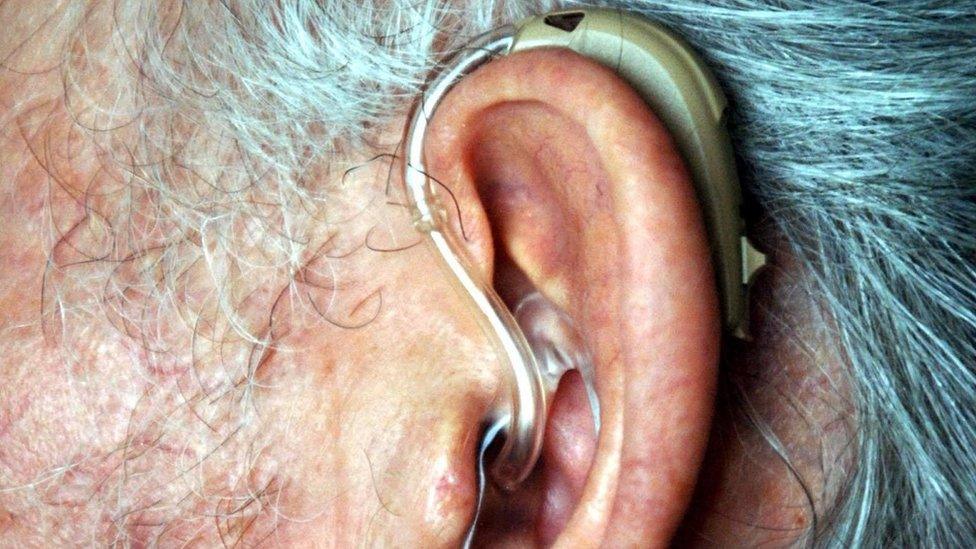Salford's medical services failing to support deaf residents, group says
- Published

The report said medics in the city lacked awareness of how to access British Sign Language interpreters
People who are deaf or hard-of-hearing have found accessing medical support in Salford like trying to get "the right piece of the 1,000-piece jigsaw first time", a report has said.
Salford Deaf Community Gathering (SDCG) said the city's GPs and hospitals were ignoring the Equality Act 2010.
The group's report also said medics lacked awareness of how to access British Sign Language interpreters.
The city's medical director Dr Tom Regan said it had "more to do".
The Local Democracy Reporting Service said the group's report was about underlining "true independent living".
In it, SDCG said Salford was "rich with resources to help, support and empower the community", but only finding it was "like searching for the right piece of the 1,000-piece jigsaw first time".
It said during the Covid-19 pandemic, many people with hearing issues were "disproportionately affected" by the lack of awareness among service providers, which resulted in them having "unequal access to information and accessible communications".
It said that while the Greater Manchester Integrated Care Partnership, which runs services in the city, had a duty to provide sign language and deafblind "hands on" interpreters and lip speakers for "all primary care appointments on request", that was "not widely known" by either those needing them or "providers across the city".
'Directly engage'
The report also said that video relay interpreting services, which had been introduced for some appointments to increase capacity "must not be used as the norm" as the method was "three times more costly" and also caused issues around the use of sign language "due to the small frame".
It said that while there was "much to celebrate in Salford compared to other parts of the UK and even other boroughs in Greater Manchester", there were other issues, such as the the city's sexual health service remaining inaccessible to those with hearing loss.
It added that managers and commissioners needed to "directly engage" with the community to ensure they were commissioning services that were wanted and approved for the people using them.
"They should not be done in isolation where commissioners can be accused of being 'audist' and discriminating," it said.
"All too often once services have been contracted cannot easily be amended."
Dr Regan said he welcomed the report as understanding where the city needed to "make improvements" to health and care services was extremely important to us".
"We are committed to doing whatever we can to make sure no-one is treated unfairly," he added.

Why not follow BBC North West on Facebook, external, Twitter, external and Instagram, external? You can also send story ideas to northwest.newsonline@bbc.co.uk, external